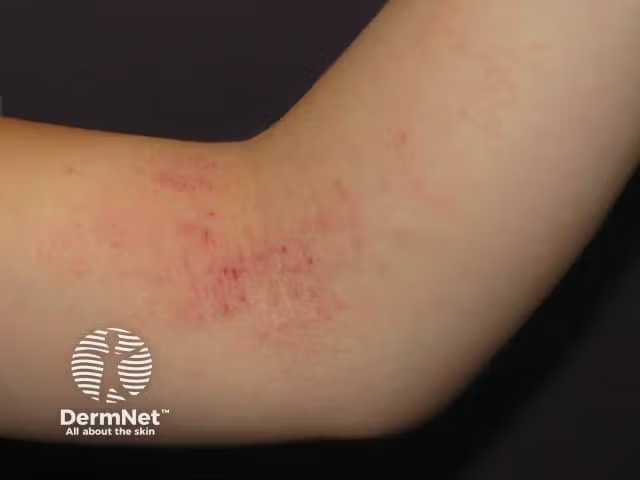- Case-Based Roundtable
- General Dermatology
- Eczema
- Chronic Hand Eczema
- Alopecia
- Aesthetics
- Vitiligo
- COVID-19
- Actinic Keratosis
- Precision Medicine and Biologics
- Rare Disease
- Wound Care
- Rosacea
- Psoriasis
- Psoriatic Arthritis
- Atopic Dermatitis
- Melasma
- NP and PA
- Skin Cancer
- Hidradenitis Suppurativa
- Drug Watch
- Pigmentary Disorders
- Acne
- Pediatric Dermatology
- Practice Management
- Prurigo Nodularis
- Buy-and-Bill
Video
How Biologics Have Changed the Atopic Dermatitis Treatment Spectrum
Andrew F. Alexis, MD, MPH, and Benjamin N. Lockshin, MD, evaluate the effect of the rapidly changing therapeutic landscape in atopic dermatitis.
Andrew F. Alexis, MD, MPH: It’s amazing how much the treatment landscape has evolved just in a matter of a few years. Ben, can you bring us up to speed on what’s currently available? There’s been a lot of movement in this space starting with biologics and maybe other agents that are available now for moderate to severe AD [atopic dermatitis].
Benjamin N. Lockshin, MD: I went from years ago dreading seeing some of these atopic dermatitis patients and as follow-up patients, knowing that the therapies that I had available to me were limited and spotty in terms of the reliability of benefiting my patients. Moreover, I was worried about the short- and long-term adverse events from some of the traditional, older generation, small molecule agents like ciclosporin, methotrexate, CellCept [mycophenolate], Imuran [azathioprine], etcetera. Then, there’s phototherapy, which was time-consuming and also somewhat unreliable in terms of its performance. About 10 years ago, I was fortunate enough to be part of some of the early dupilumab studies, which was really the introduction of this modern era of treating patients. For the past 5-plus years, we’ve had dupilumab commercially available to our adult patients with now extension to the young groups, as we know. Recently, tralokinumab and soon lebrikizumab as well will be making their way into the marketplace, and that’s rounding up the biologic therapies. But adding to these large biologic proteins, we’ve got a new class, a new generation of small molecule agents. I like the JAK [Janus kinase] inhibitor. We’ve got upadacitinib and abrocitinib, both really helping us manage some of the more difficult cases. I feel the more options we have available to us to treat these patients, the better we can perform as physicians. I don’t know about you, but I have patients, especially with psoriasis, over the years, say, “You’re just a great dermatologist, I can’t believe I met you. Thank God for clearing my skin.” For a long time, I’d say, “It’s really the medications, it’s not me.” And now, I’ve just simplified, I just say, “Yes, it’s me. I appreciate that.” Now I feel the same way with atopic dermatitis. I have really great tools to get these patients with a large delta between the efficacy standards and the tolerability and safety. So has your approach to managing these patients change radically over the years? And more importantly, has your desire to see these patients changed based on the new medications that we have available to us?
Andrew F. Alexis, MD, MPH: I share a very similar perspective. It’s actually a joy to see patients with moderate to severe AD today…Years ago I would sit in the office and try to counsel my patients who were really upset about the lack of treatment options and the challenges and safety concerns with the existing therapies that we used to have, and tell them that one day, soon, in development, we’ve got new things coming. It’s amazing that now the future is here, we have those things that I was promising 10 years ago. In terms of your comment about when patients thank you for their great results, I often give them credit too, of course, because without their adherence to the treatment plan, we’re not going to see the outcomes that we see.
TRANSCRIPT EDITED FOR CLARITY






